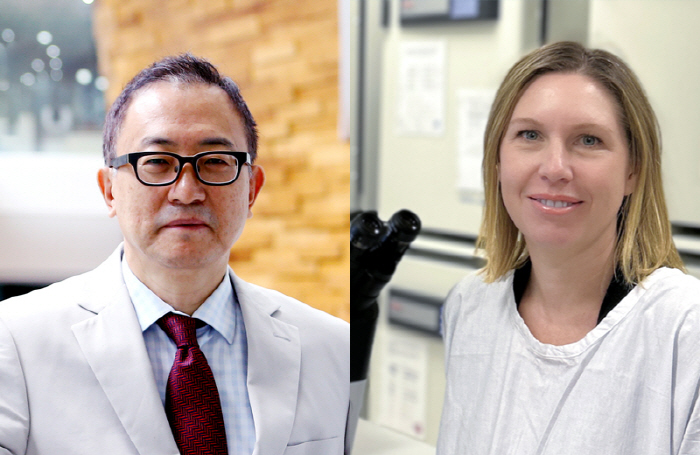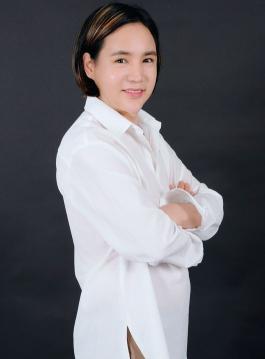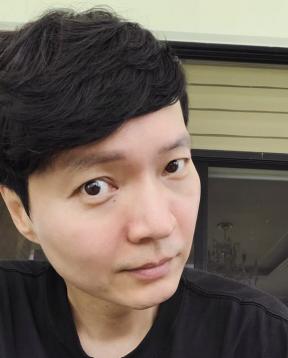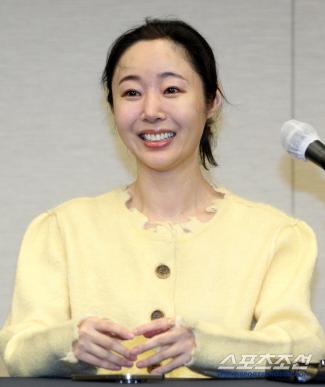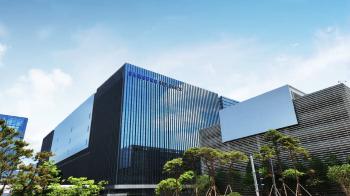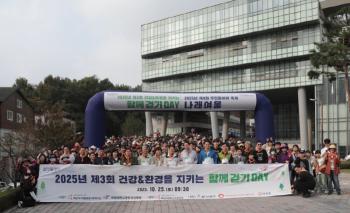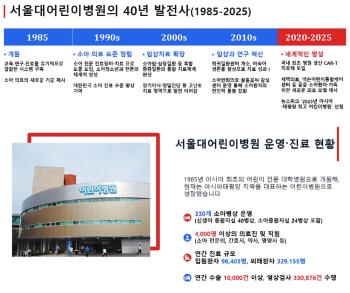Professor Katie Iyer was selected as the 12th recipient of the Reproductive Medicine Society's Cha Kwang-ryul Stem Cell Award
Oct 28, 2025
Cha Hospital is Henry B, San Antonio, Texas, USA. At the 81st American Society for Reproductive Medicine (ASRM) held at the Gonzalez Convention Center, Professor Katie Ayers of the Murdoch Children's Institute at the University of Melbourne in Australia was selected as the 12th recipient of the Cha Kwang-ryeol Stem Cell Award.
In addition, research director Cha Kwang-ryul donated $1 million to ASRM to protect and promote reproductive medicine research and to foster male and female reproductive medicine students.
Cha Kwang-ryeol's stem cell phase is the first in-vitro culture method of immature eggs, the world's first rapid egg freezing method, and the first in-vitro culture method in the field of infertility, stem cells, and regenerative medicine by the American Society of Reproductive Medicine (ASRM)The award was established in 2011 after the name of Cha Kwang-ryul, head of the global research institute of the group.
The award, the only one established by the American Society of Reproductive Medicine after an Asian name, was presented to a researcher leading innovative research and development in infertility and reproductive medicine, and the winners were announced 12 times this year. The Korean Society of Stem Cell Sciences as well as the United States established the Cha Kwang-ryeol Stem Cell Award this year to announce the winners, and the Korean Society of Reproductive Medicine established the Cha Kwang-ryeol Academic Award in 2019 and awards it every year.
Dr. Katie Iyer, a 12-time winner of the U.S. Society of Reproductive Medicine's Cha Kwang-ryul Stem Cell Award, won the Cha Kwang-ryul Stem Cell Award for her research on 「Development of scalable stem cell models to analyze genes and regulatory domains involved in fetal germline development and sexual differentiation abnormalities」.
Dr. Katie Iyer is a group leader at the Murdoch Children's Research Institute (MCRI) and an associate professor of pediatrics at the University of Melbourne, studying the genetic and molecular mechanisms of human reproductive development and gender development differences (DSD). He serves as an editor of several journals, including reproductive biology and sexual developmental biology, and has published his research results in major journals such as Genome Biology, Nature Communications, and Developmental Cell. In particular, he won the Alan Wilton Award at the Human Genetics Society of Australia (HGSA) for characterizing the sex chromosome of chickens, and in 2016, he developed a new genetic panel to improve the diagnosis rate.
Dr. Katie Iyer said, "The key task of this study is to use testicular organoids derived from stem cells, and it is meaningful to receive the Cha Kwang-ryul Stem Cell Award, which has made a great achievement in reproductive medicine. Treatment is not easy because it is difficult to identify the genetic cause of reproductive disorders such as sexual development differences. I want to focus on this study and ultimately make guidelines for diagnosis, prognosis, and clinical management.", he expressed his feelings.
Since 1997, Cha Kwang-ryul, the head of the research institute, has continued to donate steadily to foster the younger students and revitalize reproductive medicine research. ▲ Donated 50 billion won in private funds in 1997, full scholarship to all medical students by 2013 ▲ Donated 32 billion won to the IMF financial crisis in 1998 ▲ Donated 100 million won to Yonsei University scholarship campaign in 2009 ▲ Donated 2 billion won to Yonsei Medical Center in 2010 ▲ Donated 10 billion won in private funds to stem cell research in 2011, donated 1.3 million dollars to ASRM ▲ Donated 1 billion won to support incurable diseases from 2021 ▲ Donated scholarship to his alma mater in 2025 ▲ Donated 1 million dollars to ASRM's private funds.
In addition, donations are provided to the Asian Stem Cell Association, the Korean Stem Cell Association, and the Reproductive Medicine Association, and since 2015, all of their salaries and dividends have been used to cultivate talent for stem cell industrialization. In particular, this time, we will support researchers who are struggling with cutting research costs in the field of reproductive medicine in the United States to participate in ASRM's 'Fighting for Our Future: Rescue Research' campaign to protect research in the field of reproductive medicine and to continue training the next generation of researchers. The donation was also reported in local media in the United States, attracting attention. The donation will be used to increase research expenses for Cha Kwang-ryul, the winner of the stem cell award, and to hold a KY CHA symposium to exchange research results in stem cell and reproductive medicine.
Chairman of ASRM Elizabeth Ginsburg "I deeply appreciate the generous support of Cha Kwang-ryul, the head of the research center"This donation will be a great help in protecting the reproductive medicine research ecosystem, promoting new discoveries, and continuing the training of the next generation of scientists."
Meanwhile, Cha Kwang-ryul Cha Hospital and Cha BioThe head of the Group Global Research Institute succeeded in conceiving and giving birth to an in vitro baby for the first time in a private hospital in Korea in 1985, and the world's first immature egg in 1988. In 1998, he developed the vitrified egg freeze preservation method, a rapid egg freezing method, and in 1999, he established the world's first egg bank to open the era of egg storage and make his name worldwide. In 2014, it succeeded in establishing the world's first somatic cell cloning stem cell line in adult skin, making great achievements in reproductive medicine such as infertile stem cells.
In addition, research director Cha Kwang-ryul donated $1 million to ASRM to protect and promote reproductive medicine research and to foster male and female reproductive medicine students.
Cha Kwang-ryeol's stem cell phase is the first in-vitro culture method of immature eggs, the world's first rapid egg freezing method, and the first in-vitro culture method in the field of infertility, stem cells, and regenerative medicine by the American Society of Reproductive Medicine (ASRM)The award was established in 2011 after the name of Cha Kwang-ryul, head of the global research institute of the group.
The award, the only one established by the American Society of Reproductive Medicine after an Asian name, was presented to a researcher leading innovative research and development in infertility and reproductive medicine, and the winners were announced 12 times this year. The Korean Society of Stem Cell Sciences as well as the United States established the Cha Kwang-ryeol Stem Cell Award this year to announce the winners, and the Korean Society of Reproductive Medicine established the Cha Kwang-ryeol Academic Award in 2019 and awards it every year.
Dr. Katie Iyer, a 12-time winner of the U.S. Society of Reproductive Medicine's Cha Kwang-ryul Stem Cell Award, won the Cha Kwang-ryul Stem Cell Award for her research on 「Development of scalable stem cell models to analyze genes and regulatory domains involved in fetal germline development and sexual differentiation abnormalities」.
Dr. Katie Iyer is a group leader at the Murdoch Children's Research Institute (MCRI) and an associate professor of pediatrics at the University of Melbourne, studying the genetic and molecular mechanisms of human reproductive development and gender development differences (DSD). He serves as an editor of several journals, including reproductive biology and sexual developmental biology, and has published his research results in major journals such as Genome Biology, Nature Communications, and Developmental Cell. In particular, he won the Alan Wilton Award at the Human Genetics Society of Australia (HGSA) for characterizing the sex chromosome of chickens, and in 2016, he developed a new genetic panel to improve the diagnosis rate.
Dr. Katie Iyer said, "The key task of this study is to use testicular organoids derived from stem cells, and it is meaningful to receive the Cha Kwang-ryul Stem Cell Award, which has made a great achievement in reproductive medicine. Treatment is not easy because it is difficult to identify the genetic cause of reproductive disorders such as sexual development differences. I want to focus on this study and ultimately make guidelines for diagnosis, prognosis, and clinical management.", he expressed his feelings.
Since 1997, Cha Kwang-ryul, the head of the research institute, has continued to donate steadily to foster the younger students and revitalize reproductive medicine research. ▲ Donated 50 billion won in private funds in 1997, full scholarship to all medical students by 2013 ▲ Donated 32 billion won to the IMF financial crisis in 1998 ▲ Donated 100 million won to Yonsei University scholarship campaign in 2009 ▲ Donated 2 billion won to Yonsei Medical Center in 2010 ▲ Donated 10 billion won in private funds to stem cell research in 2011, donated 1.3 million dollars to ASRM ▲ Donated 1 billion won to support incurable diseases from 2021 ▲ Donated scholarship to his alma mater in 2025 ▲ Donated 1 million dollars to ASRM's private funds.
In addition, donations are provided to the Asian Stem Cell Association, the Korean Stem Cell Association, and the Reproductive Medicine Association, and since 2015, all of their salaries and dividends have been used to cultivate talent for stem cell industrialization. In particular, this time, we will support researchers who are struggling with cutting research costs in the field of reproductive medicine in the United States to participate in ASRM's 'Fighting for Our Future: Rescue Research' campaign to protect research in the field of reproductive medicine and to continue training the next generation of researchers. The donation was also reported in local media in the United States, attracting attention. The donation will be used to increase research expenses for Cha Kwang-ryul, the winner of the stem cell award, and to hold a KY CHA symposium to exchange research results in stem cell and reproductive medicine.
Chairman of ASRM Elizabeth Ginsburg "I deeply appreciate the generous support of Cha Kwang-ryul, the head of the research center"This donation will be a great help in protecting the reproductive medicine research ecosystem, promoting new discoveries, and continuing the training of the next generation of scientists."
Meanwhile, Cha Kwang-ryul Cha Hospital and Cha BioThe head of the Group Global Research Institute succeeded in conceiving and giving birth to an in vitro baby for the first time in a private hospital in Korea in 1985, and the world's first immature egg in 1988. In 1998, he developed the vitrified egg freeze preservation method, a rapid egg freezing method, and in 1999, he established the world's first egg bank to open the era of egg storage and make his name worldwide. In 2014, it succeeded in establishing the world's first somatic cell cloning stem cell line in adult skin, making great achievements in reproductive medicine such as infertile stem cells.
|
This article was translated by Naver AI translator.
